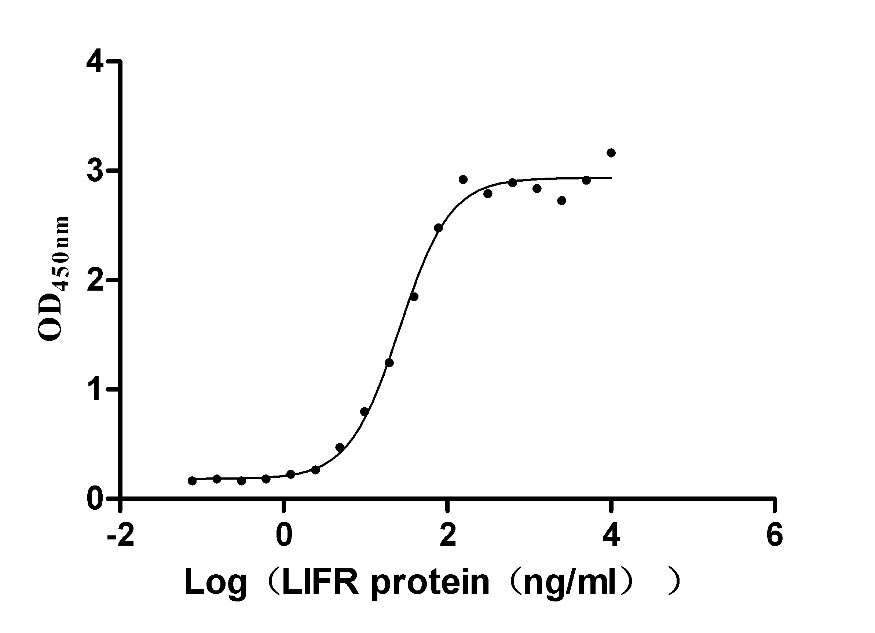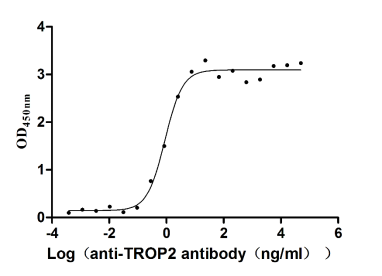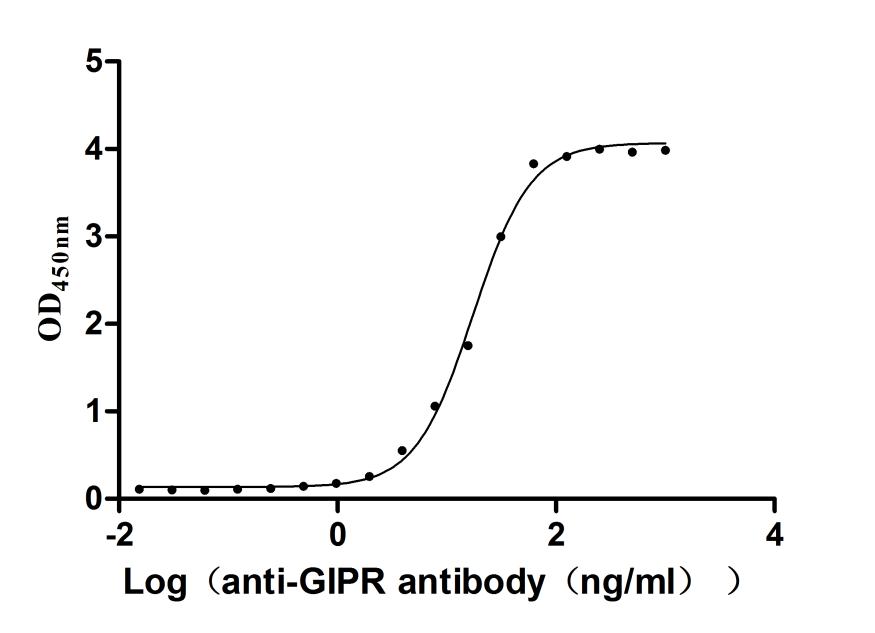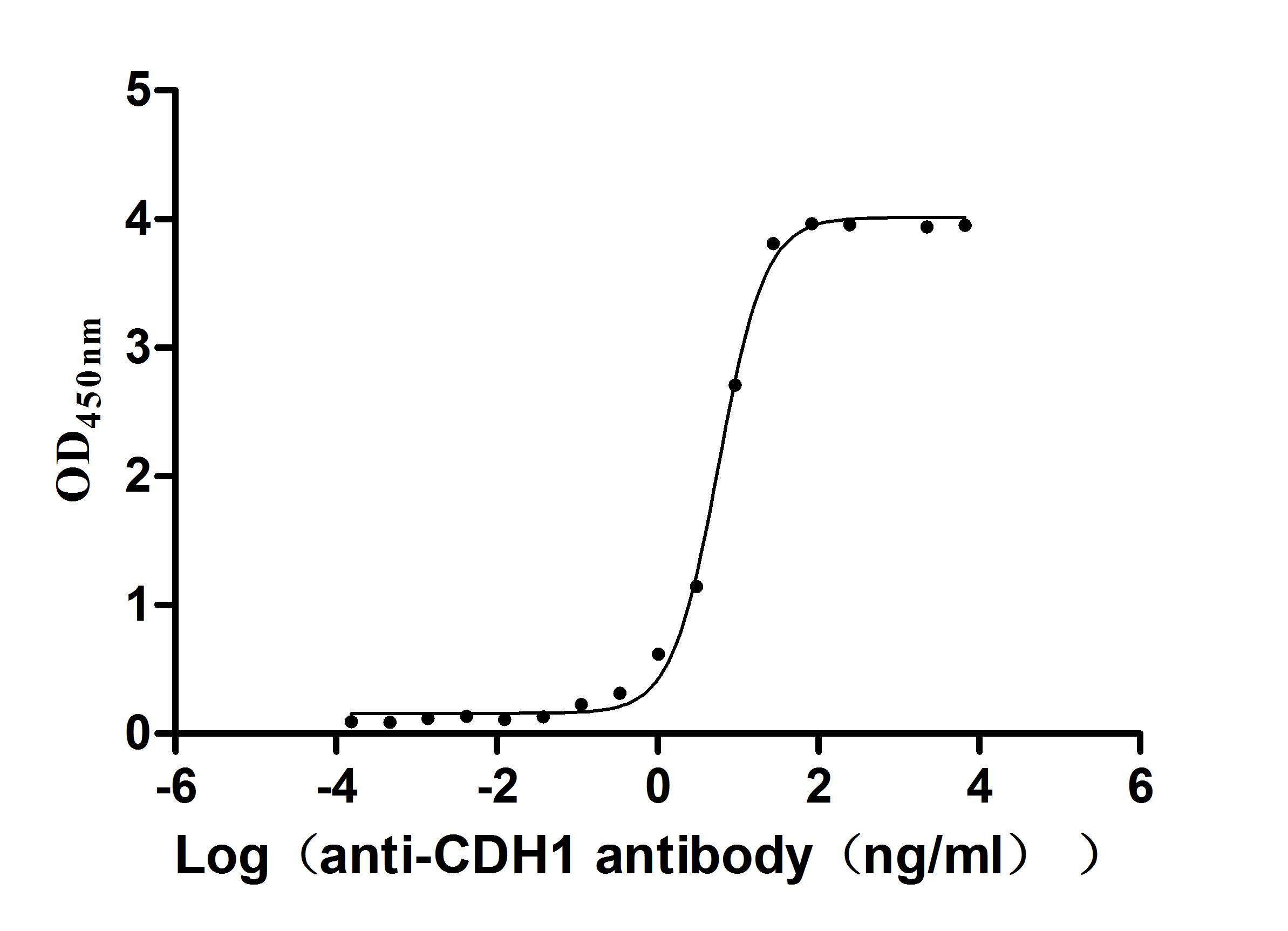Recombinant Mouse Serine/threonine-protein kinase PLK4 (Plk4), partial
-
中文名称:小鼠Plk4重组蛋白
-
货号:CSB-YP731078MO
-
规格:
-
来源:Yeast
-
其他:
-
中文名称:小鼠Plk4重组蛋白
-
货号:CSB-EP731078MO
-
规格:
-
来源:E.coli
-
其他:
-
中文名称:小鼠Plk4重组蛋白
-
货号:CSB-EP731078MO-B
-
规格:
-
来源:E.coli
-
共轭:Avi-tag Biotinylated
E. coli biotin ligase (BirA) is highly specific in covalently attaching biotin to the 15 amino acid AviTag peptide. This recombinant protein was biotinylated in vivo by AviTag-BirA technology, which method is BriA catalyzes amide linkage between the biotin and the specific lysine of the AviTag.
-
其他:
-
中文名称:小鼠Plk4重组蛋白
-
货号:CSB-BP731078MO
-
规格:
-
来源:Baculovirus
-
其他:
-
中文名称:小鼠Plk4重组蛋白
-
货号:CSB-MP731078MO
-
规格:
-
来源:Mammalian cell
-
其他:
产品详情
-
纯度:>85% (SDS-PAGE)
-
基因名:
-
Uniprot No.:
-
别名:Plk4; Sak; Stk18; Serine/threonine-protein kinase PLK4; EC 2.7.11.21; Polo-like kinase 4; PLK-4; Serine/threonine-protein kinase 18; Serine/threonine-protein kinase Sak
-
种属:Mus musculus (Mouse)
-
蛋白长度:Partial
-
蛋白标签:Tag type will be determined during the manufacturing process.
The tag type will be determined during production process. If you have specified tag type, please tell us and we will develop the specified tag preferentially. -
产品提供形式:Lyophilized powder
Note: We will preferentially ship the format that we have in stock, however, if you have any special requirement for the format, please remark your requirement when placing the order, we will prepare according to your demand. -
复溶:We recommend that this vial be briefly centrifuged prior to opening to bring the contents to the bottom. Please reconstitute protein in deionized sterile water to a concentration of 0.1-1.0 mg/mL.We recommend to add 5-50% of glycerol (final concentration) and aliquot for long-term storage at -20℃/-80℃. Our default final concentration of glycerol is 50%. Customers could use it as reference.
-
储存条件:Store at -20°C/-80°C upon receipt, aliquoting is necessary for mutiple use. Avoid repeated freeze-thaw cycles.
-
保质期:The shelf life is related to many factors, storage state, buffer ingredients, storage temperature and the stability of the protein itself.
Generally, the shelf life of liquid form is 6 months at -20°C/-80°C. The shelf life of lyophilized form is 12 months at -20°C/-80°C. -
货期:Delivery time may differ from different purchasing way or location, please kindly consult your local distributors for specific delivery time.Note: All of our proteins are default shipped with normal blue ice packs, if you request to ship with dry ice, please communicate with us in advance and extra fees will be charged.
-
注意事项:Repeated freezing and thawing is not recommended. Store working aliquots at 4°C for up to one week.
-
Datasheet :Please contact us to get it.
靶点详情
-
功能:Serine/threonine-protein kinase that plays a central role in centriole duplication. Able to trigger procentriole formation on the surface of the parental centriole cylinder, leading to the recruitment of centriole biogenesis proteins such as SASS6, CENPJ/CPAP, CCP110, CEP135 and gamma-tubulin. When overexpressed, it is able to induce centrosome amplification through the simultaneous generation of multiple procentrioles adjoining each parental centriole during S phase. Phosphorylates 'Ser-151' of FBXW5 during the G1/S transition, leading to inhibit FBXW5 ability to ubiquitinate SASS6. Its central role in centriole replication suggests a possible role in tumorigenesis, centrosome aberrations being frequently observed in tumors. Phosphorylates CDC25C and CHEK2. Also involved in deuterosome-mediated centriole amplification in multiciliated that can generate more than 100 centrioles. Also involved in trophoblast differentiation by phosphorylating HAND1, leading to disrupt the interaction between HAND1 and MDFIC and activate HAND1. Required for the recruitment of STIL to the centriole and for STIL-mediated centriole amplification. Phosphorylates CEP131 at 'Ser-78' and PCM1 at 'Ser-372' which is essential for proper organization and integrity of centriolar satellites.
-
基因功能参考文献:
- Aurora A and Plk4 are rate-limiting factors contributing to microtubule growth as the acentriolar oocyte resumes meiosis. PMID: 28972102
- that aneuploidy induced by transient centrosome amplification can accelerate tumorigenesis in p53-deficient cells PMID: 26595384
- Transient knockdown of KLF14 is sufficient to induce Plk4-directed centrosome amplification. PMID: 26439168
- PLK4 is essential for meiotic resumption but may not influence spindle formation in mouse oocytes during meiotic maturation PMID: 25740542
- p53-Dependent and cell specific epigenetic regulation of the polo-like kinases under oxidative stress. PMID: 24498222
- The Plk4-Cep152 complex has an unexpected role in promoting microtubule nucleation in the vicinity of chromosomes to mediate bipolar spindle formation in the absence of centrioles. PMID: 24268700
- Loss of Plk4 is associated with centrosome amplification causing microcephaly. PMID: 23666084
- PP2A (Protein Phosphatase 2A(Twins)) counteracts Plk4 autophosphorylation, thus stabilizing Plk4 and promoting centriole duplication PMID: 21987638
- the I242N heterozygous mutation in PLK4 is causative for patchy germ cell loss beginning at P10, suggesting a role for PLK4 during the initiation of spermatogenesis. PMID: 21791561
- Aberrant Plk methylation is correlated with the development of hepatocellular carcinoma in mice. PMID: 21324136
- Plk4 is required for cytokinesis and maintenance of chromosomal stability PMID: 20348415
- We propose that kinase-mediated, autoregulated instability of Plk4 self-limits Plk4 activity so as to prevent centrosome amplification. PMID: 20100909
- 2.0 A crystal structure of a novel domain composed of the polo box motif of murine Sak PMID: 12352953
- polo-like kinase Plk4 (also called Sak) is required for late mitotic progression, cell survival and postgastrulation embryonic development PMID: 16025114
- Study shows that polo-like kinase Plk4 mediate the nucleolar release of Hand1 for its dimerization and biological function. PMID: 17891141
- Plk4 haploinsufficiency leads to changes in the levels of RNA accumulation for a number of key cellular genes as well as changes in protein levels for several important cell cycle/DNA damage proteins PMID: 19607708
显示更多
收起更多
-
亚细胞定位:Cytoplasm, cytoskeleton, microtubule organizing center, centrosome, centriole. Nucleus, nucleolus. Cleavage furrow. Cytoplasm, cytoskeleton, microtubule organizing center, centrosome. Note=Associates with centrioles throughout the cell cycle. According to PubMed:11301255, it localizes to the nucleolus during G2, to the centrosomes in G2/M, and to the cleavage furrow during cytokinesis. Component of the deuterosome, a structure that promotes de novo centriole amplification in multiciliated cells that can generate more than 100 centrioles.
-
蛋白家族:Protein kinase superfamily, Ser/Thr protein kinase family, CDC5/Polo subfamily
-
组织特异性:expressed in tissues associated with mitotic and meiotic cell division. Highly expressed in testis.
-
数据库链接:
Most popular with customers
-
Recombinant Human Leukemia inhibitory factor (LIF) (Active)
Express system: Mammalian cell
Species: Homo sapiens (Human)
-
Recombinant Human C-X-C chemokine receptor type 4 (CXCR4)-VLPs (Active)
Express system: Mammalian cell
Species: Homo sapiens (Human)
-
Recombinant Human Tumor-associated calcium signal transducer 2 (TACSTD2), partial (Active)
Express system: Mammalian cell
Species: Homo sapiens (Human)
-
Recombinant Human Gastric inhibitory polypeptide receptor(GIPR),partial (Active)
Express system: Mammalian cell
Species: Homo sapiens (Human)
-
Recombinant Human Cadherin-1(CDH1),partial (Active)
Express system: Mammalian cell
Species: Homo sapiens (Human)



-AC1.jpg)












